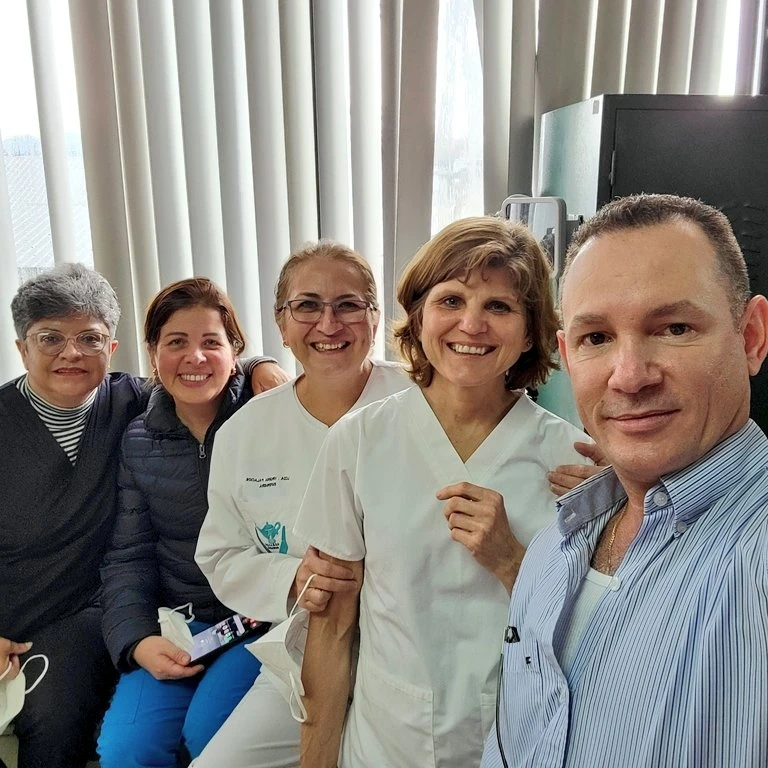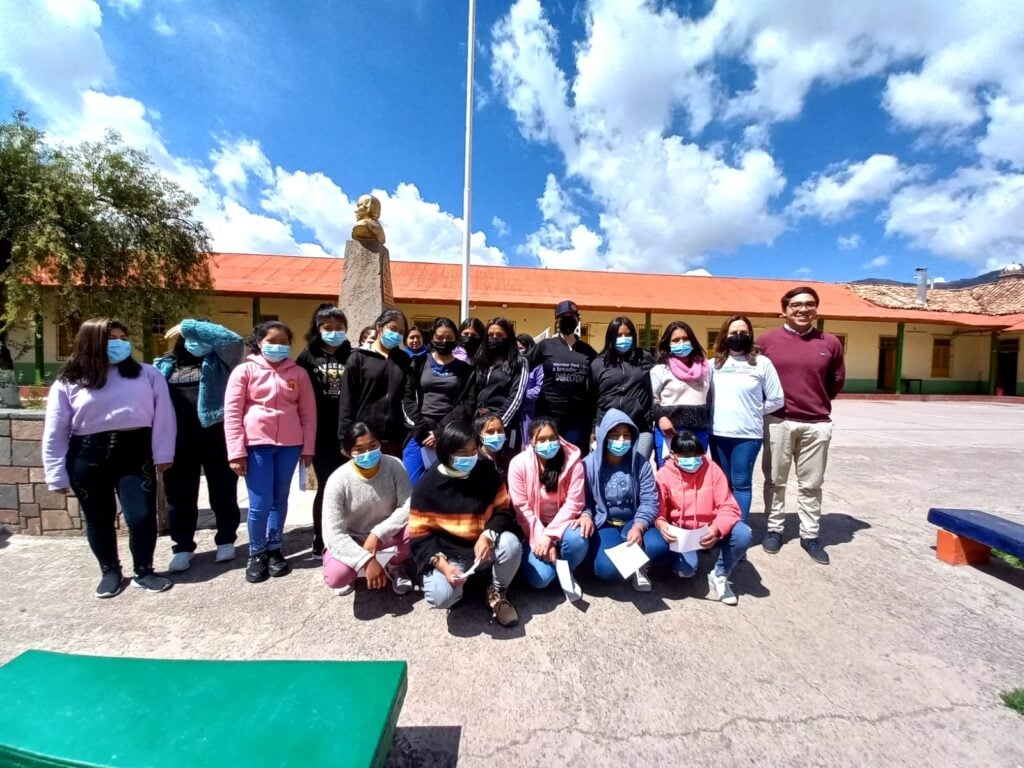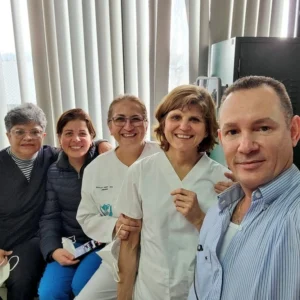Discover the transformative benefits of participating in missionary trips abroad. From cultural exchange and personal growth to making a positive impact and fostering global citizenship, explore how these trips offer unique opportunities for service, learning, and connection.
List of Content:
- Introduction
- Cultural Exchange and Global Perspective
- Personal Growth and Self-Discovery
- Making a Positive Impact
- Strengthening Faith and Spiritual Growth
- Creating Lasting Relationships
- Fostering Global Citizenship
- Conclusion
Introduction
Missionary trips abroad, also known as international mission trips or volunteer abroad missions, have become increasingly popular in recent years. These short-term opportunities offer individuals and groups the chance to engage in meaningful service work, make a positive impact on communities in need, and broaden their global perspective. Whether it’s for religious reasons, personal growth, or a desire to serve others, participating in missionary trips abroad provides numerous benefits that extend far beyond the duration of the trip itself.
- Cultural Exchange and Global Perspective
One of the most significant advantages of participating in missionary trips abroad is the opportunity for cultural exchange and gaining a broader global perspective. By immersing oneself in a different culture, volunteers gain firsthand experience of diverse customs, traditions, and ways of life. This exposure helps break down stereotypes and fosters a greater appreciation for diversity, promoting a more inclusive and understanding society.
- Personal Growth and Self-Discovery
Engaging in missionary work abroad offers individuals a unique opportunity for personal growth and self-discovery. These experiences take volunteers out of their comfort zones, challenging them to confront their limitations, and providing a platform for developing essential life skills. Whether it’s teaching English, building homes, providing medical assistance, or running outreach programs, the following aspects contribute to personal growth and self-discovery:
- Stepping Outside Comfort Zones: Participating in missionary work abroad requires individuals to step outside their comfort zones. It involves immersing oneself in unfamiliar environments, cultures, and communities. By venturing into the unknown, volunteers are exposed to new challenges, perspectives, and ways of life. This experience pushes individuals to adapt, learn, and grow, ultimately expanding their comfort zones and fostering personal development.
- Confronting Limitations: Missionary work abroad often presents volunteers with unexpected challenges and obstacles. They may face language barriers, cultural differences, limited resources, and demanding work conditions. Overcoming these challenges requires individuals to confront their limitations, tap into their inner strengths, and develop resilience. Through perseverance, volunteers gain a deeper understanding of their capabilities and discover their potential for growth.
- Developing Essential Life Skills: Engaging in missionary work abroad nurtures the development of a wide range of essential life skills. Volunteers take on various responsibilities, such as organizing and leading projects, collaborating with team members, problem-solving, and managing time effectively. They learn to communicate and connect with individuals from diverse backgrounds, cultivating interpersonal skills and empathy. These experiences contribute to the development of leadership, teamwork, adaptability, and decision-making skills that are applicable in all aspects of life.
- Overcoming Challenges and Uncertainties: Working in a foreign environment introduces volunteers to a host of challenges and uncertainties. They may encounter unexpected situations, unfamiliar cultural norms, and logistical hurdles. The ability to navigate these challenges and adapt to the circumstances fosters personal growth. Volunteers learn to think on their feet, find creative solutions, and remain resilient in the face of adversity. These experiences cultivate a sense of self-confidence, empowering individuals to tackle future challenges with a positive mindset.
- Broadening Perspectives and Empathy: Engaging in missionary work abroad broadens individuals’ perspectives and nurtures empathy. By interacting with people from different backgrounds and witnessing their struggles and triumphs, volunteers gain a deeper understanding of global issues, social inequalities, and the human condition. This expanded perspective fosters empathy and compassion, allowing individuals to connect with others on a deeper level. It encourages them to be more inclusive, tolerant, and committed to promoting social justice and equality.
- Self-Discovery and Identity Formation: Missionary work abroad often provides a reflective space for self-discovery and identity formation. The immersive nature of the experience, coupled with the challenges and personal growth it entails, encourages individuals to introspect and reflect on their values, beliefs, and purpose. Through exposure to different cultures and ways of life, volunteers may re-evaluate their own identities, priorities, and aspirations, leading to a deeper understanding of themselves and their place in the world.
- Making a Positive Impact
Making a positive impact is a central aspect of missionary trips abroad, as volunteers actively engage in projects that address critical needs and contribute to the well-being of communities. Here are some ways in which these trips enable volunteers to make a tangible and lasting difference:
- Addressing Critical Needs: Missionary trips abroad focus on identifying and addressing critical needs within communities. Volunteers contribute their skills, knowledge, and resources to projects related to education, healthcare, infrastructure development, social services, and more. They may teach classes, provide medical assistance, build homes or schools, establish clean water systems, or support sustainable agriculture initiatives. By directly engaging in these projects, volunteers help meet immediate needs and create long-term solutions for communities facing poverty, inequality, or disaster.
- Providing Hope and Support: Missionary trips abroad provide hope and support to individuals and communities facing challenging circumstances. By lending a helping hand, volunteers show care, compassion, and solidarity with those in need. The presence of volunteers can inspire individuals and communities to believe in a better future, igniting a sense of optimism and motivation to overcome adversity. This emotional support can be just as transformative as the tangible assistance provided.
- Empowering Communities: Missionary trips abroad aim to empower communities by fostering self-reliance and sustainability. Volunteers often work alongside local residents, providing training and resources that enable them to continue projects independently after the volunteers’ departure. This capacity-building approach ensures that communities have the skills and knowledge to maintain and expand the initiatives initiated during the missionary trip. By empowering communities, volunteers contribute to their long-term development and self-sufficiency.
- Spreading Knowledge and Skills: Through missionary trips abroad, volunteers have the opportunity to share their knowledge and skills with local communities. Whether it’s teaching English, providing vocational training, or offering workshops on various subjects, volunteers impart valuable knowledge that can enhance the lives and opportunities of community members. By equipping individuals with new skills, volunteers contribute to their personal growth, employability, and overall well-being.
- Cultivating Sustainable Change: Missionary trips abroad prioritize sustainable change by focusing on initiatives that have a lasting impact. Volunteers work in collaboration with local organizations and community leaders to develop projects that align with the community’s long-term goals and needs. By adopting a holistic and participatory approach, volunteers ensure that their efforts contribute to sustainable development and positive change even after their departure.
- Positive Ripple Effects: The impact of missionary trips abroad often extends beyond the immediate beneficiaries. By actively engaging with the community, volunteers inspire and motivate others to become agents of change. They serve as catalysts for community members to develop new skills, advocate for their rights, and initiate their own projects. The positive ripple effects of these trips can lead to a broader transformation within the community, fostering a culture of empowerment, resilience, and community engagement.
- Strengthening Faith and Spiritual Growth
Strengthening faith and spiritual growth are significant aspects of participating in missionary trips abroad, particularly for individuals with religious motivations. These trips provide a unique opportunity to deepen one’s faith and engage in a transformative spiritual journey. Here are some ways in which missionary trips abroad contribute to strengthening faith and fostering spiritual growth:
- Living Out Beliefs: Missionary trips abroad offer participants the chance to put their religious beliefs into action. It allows them to embody the principles and teachings of their faith by serving others and addressing the needs of vulnerable communities. By actively engaging in acts of compassion, volunteers experience a tangible expression of their faith, which deepens their understanding and commitment to their religious values.
- Witnessing Real-Life Challenges: Through missionary work abroad, volunteers often witness firsthand the challenges and hardships faced by individuals and communities. This exposure to different forms of poverty, inequality, and suffering can have a profound impact on one’s spiritual journey. It encourages introspection, empathy, and a deeper appreciation for the resilience and strength of the human spirit. The experience can prompt individuals to reflect on the meaning of their own faith and how it guides them in the face of adversity.
- Developing Empathy and Compassion: Engaging in missionary work abroad fosters empathy and compassion as volunteers interact with individuals who are marginalized or facing difficult circumstances. By walking in the shoes of others and listening to their stories, volunteers gain a greater understanding of the inherent dignity and worth of every human being. This increased empathy and compassion contribute to a broader spiritual growth, leading to a deeper connection with humanity and a commitment to social justice and solidarity.
- Renewed Sense of Purpose: Missionary trips abroad often provide participants with a renewed sense of purpose and direction. By actively serving others and witnessing the impact of their efforts, volunteers can experience a deepening of their understanding of their faith’s calling. The experience of making a positive difference in the lives of others can inspire individuals to reevaluate their priorities and seek ways to integrate their faith into their daily lives and future endeavors.
- Cultivating Humility and Gratitude: Engaging in missionary work abroad can be a humbling experience as volunteers come face-to-face with the resilience and strength of individuals who face challenging circumstances. This humbling experience fosters humility and a recognition of one’s own privileges and blessings. It also encourages gratitude for the resources, opportunities, and support in one’s own life, leading to a deepened spiritual appreciation for the gifts bestowed upon them.
- Nurturing Community and Fellowship: Missionary trips abroad often involve working closely with fellow volunteers who share similar religious beliefs and values. The sense of community and fellowship that develops during these trips can be a source of spiritual support and growth. Participants can engage in shared worship, prayer, and reflection, creating a space for mutual encouragement, learning, and spiritual development.
- Creating Lasting Relationships
Fostering global citizenship is a significant outcome of participating in missionary trips abroad. These trips not only provide volunteers with firsthand experiences in different communities but also cultivate a sense of responsibility towards the welfare of others on a global scale. Here are some ways in which missionary trips foster global citizenship:
- Broadening Perspectives: Missionary trips abroad expose volunteers to different cultures, socio-economic conditions, and global issues. This firsthand experience broadens their perspectives and helps them understand the interconnectedness of the world. Volunteers gain a deeper awareness of the challenges faced by communities abroad and develop empathy for individuals who live in different circumstances. This expanded perspective promotes a sense of global citizenship by recognizing the shared humanity and collective responsibility we have towards each other.
- Advocacy and Awareness: Engaging in missionary trips abroad often inspires volunteers to become advocates for positive change. Having witnessed the realities of social injustice, poverty, or inequality, volunteers feel compelled to raise awareness about these issues within their own communities. They become voices for marginalized populations, sharing their experiences, stories, and insights to educate and mobilize others. By actively advocating for change, volunteers foster a sense of global citizenship by promoting social justice and equality.
- Sense of Responsibility: Missionary trips abroad instill a sense of responsibility towards the welfare of others. Volunteers recognize the privilege and opportunities they possess and develop a deep commitment to using their skills, resources, and influence to make a positive impact. This sense of responsibility extends beyond the specific communities they serve during the trip. Volunteers become motivated to address social and environmental issues both locally and globally, embracing a mindset of active engagement and contribution.
- Continued Involvement: Many volunteers maintain their involvement in social justice initiatives, community development projects, and international collaborations even after returning home from missionary trips. They may join local organizations or global networks that work towards sustainable development, human rights, or poverty alleviation. By continuing their engagement, volunteers embody the principles of global citizenship, making an ongoing commitment to address global challenges and contribute to positive change.
- Cultural Exchange and Understanding: Participating in missionary trips abroad fosters cultural exchange and understanding. Volunteers learn to appreciate and respect diverse cultural practices, beliefs, and perspectives. This intercultural dialogue promotes global citizenship by nurturing respect for diversity and fostering a sense of shared humanity. Volunteers recognize the value of different cultures and actively seek to promote inclusivity and understanding in their interactions with others.
- Collaborative International Efforts: Missionary trips abroad often involve collaboration with local organizations, communities, and volunteers from different countries. These collaborative efforts create a sense of shared responsibility and promote international cooperation. Volunteers engage in joint initiatives, knowledge sharing, and resource mobilization to address global challenges. This collaboration fosters a sense of global citizenship by recognizing the need for collective action and promoting cooperation across borders.
- Fostering Global Citizenship
Fostering global citizenship is a significant outcome of participating in missionary trips abroad. These trips not only provide volunteers with firsthand experiences in different communities but also cultivate a sense of responsibility towards the welfare of others on a global scale. Here are some ways in which missionary trips foster global citizenship:
- Broadening Perspectives: Missionary trips abroad expose volunteers to different cultures, socio-economic conditions, and global issues. This firsthand experience broadens their perspectives and helps them understand the interconnectedness of the world. Volunteers gain a deeper awareness of the challenges faced by communities abroad and develop empathy for individuals who live in different circumstances. This expanded perspective promotes a sense of global citizenship by recognizing the shared humanity and collective responsibility we have towards each other.
- Advocacy and Awareness: Engaging in missionary trips abroad often inspires volunteers to become advocates for positive change. Having witnessed the realities of social injustice, poverty, or inequality, volunteers feel compelled to raise awareness about these issues within their own communities. They become voices for marginalized populations, sharing their experiences, stories, and insights to educate and mobilize others. By actively advocating for change, volunteers foster a sense of global citizenship by promoting social justice and equality.
- Sense of Responsibility: Missionary trips abroad instill a sense of responsibility towards the welfare of others. Volunteers recognize the privilege and opportunities they possess and develop a deep commitment to using their skills, resources, and influence to make a positive impact. This sense of responsibility extends beyond the specific communities they serve during the trip. Volunteers become motivated to address social and environmental issues both locally and globally, embracing a mindset of active engagement and contribution.
- Continued Involvement: Many volunteers maintain their involvement in social justice initiatives, community development projects, and international collaborations even after returning home from missionary trips. They may join local organizations or global networks that work towards sustainable development, human rights, or poverty alleviation. By continuing their engagement, volunteers embody the principles of global citizenship, making an ongoing commitment to address global challenges and contribute to positive change.
- Cultural Exchange and Understanding: Participating in missionary trips abroad fosters cultural exchange and understanding. Volunteers learn to appreciate and respect diverse cultural practices, beliefs, and perspectives. This intercultural dialogue promotes global citizenship by nurturing respect for diversity and fostering a sense of shared humanity. Volunteers recognize the value of different cultures and actively seek to promote inclusivity and understanding in their interactions with others.
- Collaborative International Efforts: Missionary trips abroad often involve collaboration with local organizations, communities, and volunteers from different countries. These collaborative efforts create a sense of shared responsibility and promote international cooperation. Volunteers engage in joint initiatives, knowledge sharing, and resource mobilization to address global challenges. This collaboration fosters a sense of global citizenship by recognizing the need for collective action and promoting cooperation across borders.
Conclusion
Missionary trips abroad offer transformative experiences that not only benefit the communities being served but also positively impact the volunteers themselves. Through cultural exchange, personal growth, making a difference, strengthening faith, creating lasting relationships, and fostering global citizenship, participants in these trips gain invaluable insights and skills that shape their lives and contribute to a more compassionate and interconnected world. Whether for youth, adults, or families, these overseas mission opportunities are a powerful way to spread hope, promote understanding, and engage in meaningful service abroad.
-
Volunteering Abroad with Medical Missions: Make a Difference Today

Join medical group trips, Nurses Without Borders, and Dentists Without Borders to make a difference in underserved communities worldwide. Learn about the countries where these programs operate and read real-life experiences from volunteers. Volunteering overseas is an excellent opportunity to make a difference in the lives of others while experiencing new cultures and forging unforgettable…
-
Embrace Overseas Service | Transform Lives Through Global Volunteerism

International Volunteering: Discover Meaningful Travel and Transform Lives with A Broader View
-
A World of Opportunities: Unveiling the Benefits of International Volunteer Programs

Discover numerous benefits of international volunteer programs and unleash a world of rewarding opportunities with our in-depth guide.



